Young Adults
People between the ages of 18-24 are at a high risk of developing gambling problems. The brain is still developing, and emotion and logic aren’t fully formed. In addition, decision-making ability hasn’t yet matured, making young adults more likely to take risks or act impulsively.
Early warning signs of a gambling problem:
- Skipping classes or work to gamble
- Spending less time with Friends or avoiding family events to gamble
- Lying about how much time and money is spent gambling
- Poor nutrition, health and sleep
- Borrowing and/or stealing money to gamble
- Increased drinking and/or drug use
- Thinking about gambling frequently

Youth
First, Let’s Talk About Gambling. Gambling is taking part in any game or activity in which you risk money or a valuable object in order to win money. And for many teens, gambling is just part of life, betting on the outcome of sports games, playing dice or card games for money or even gambling on internet games. Gambling is everywhere in your life. Sometimes teens believe it is a good way to make money, if they play long enough, they’ll be sure to win This doesn’t happen.
Did you know that teens can develop gambling problems? In fact, 10-15% of teens have had a problem and 6% of teens have gone out of control with gambling, until it has become an addiction for them, something they felt they had to do.
Getting Help
You might be wondering how anyone could get addicted to gambling, but just like drugs or alcohol you can. Gambling addictions can lead to missing school, failing grades, and problems with friends or family. If you or someone you know needs help, try talking to your parents, a teacher or school counselor, friends, a community leader, or call 1-800-522-4700, it’s free, it’s confidential, it’s available 24/7 and you find the best way to get help.
How would you know you have a gambling problem?
Here are some warning signs! If you answer “YES” to any of these questions, you may have a gambling problem or be at risk for developing one.
- I’m always or nearly always thinking about gambling.
- I miss school or don’t go to work because I’m looking to play dice or some other game that involves winning money.
- I often lose more money than I can afford when I play dice.
- I have used my savings or money for necessary things like lunch money or book money for gambling.
- When I lose money, I feel like I have to continue gambling to cover my losses.
- I’m always anxious about finding a game and I get angry when I lose.
- I would never tell my parents or friends about how much I am losing when I play dice or doing other gambling.
- I have taken money that doesn’t belong to me so that I can gamble.

Parents
Talk with your kids about gambling, have a conversation, it is never too early to start the conversation.
According to the American Psychiatric Association, 10–15% of young people asked have significant gambling problems; 6% of the teens who have tried gambling have experienced gambling problems. Today, young people are surrounded by opportunities to gamble, often involved in sports pools, internet gambling, card games or dice. Often young people may not know that they have a gambling problem. Special materials developed for young people can be helpful for teachers, counselors and parents. The Maryland Center of Excellence on Problem Gambling can make recommendations for resources as well as counseling.
When does teen gambling begin?
In most Western societies, gambling is perceived as a harmless or low-risk social activity for participants of all ages. It is not unusual to see parents offering lottery tickets, especially scratch cards, to their children, even if this activity is meant for adults only. We know from research that many problem gamblers were introduced to gambling activities by family members as early as 10 years of age.
Why do adolescents play?
Contrary to popular belief, research and clinical work show that money is not the only reason why adolescents gamble. Teens play for fun, excitement, and to make money. Many of those who experience gambling problems say that they play to escape and to forget about their problems.
As a parent, you can…
- Inform yourself about the risks associated with gambling activities.
- Limit your own gambling participation, as you are an important role model for your child.
- Explain why the risk of gambling is greater for teens than for adults.
- Explain to your child the difference between responsible gambling and excessive and risky gambling.
- Clearly state your position on gambling participation by teenagers.
- Discuss rules and expectations and follow through with consequences.
- Do not offer any lottery products to your children or teenagers as gifts or rewards.
- Notice any unusual changes in your child's behavior.
- Be aware of their Internet use.
In adolescents, manifestation of gambling problems is not always as clear as those commonly observed in adult problem gamblers. However, some signs can indicate the development of a growing problem:
- a consuming interest in gambling and gambling-related activities
- problems in school, such as a loss of interest or unexplained absences
- truancy from school
- changes in personality, demeanor, mood
- frequent and unexplained need for money
- money and valuables from your home turn-up missing
- large amounts of money in is or her possession
- boasting about winnings
- unexplained new items in your child’s possession (jewelry, clothes, etc.)
- weekly or daily card games in your child’s room
- calls to sports phone lines on telephone bill
- unaccountable time away from home
- explosive expression of anger
- signs of anxiety and stress
- changes in relationships (new friends/acquaintances, ignoring old friends)
- borrowing or taking money

Seniors
Gambling can become a problem for adults over the age of 65 as easily as any other age group. Older adults are often drawn to the convenience of gambling close to home, being able to begin gambling with low amounts of money and having a safe and pleasant place to go and enjoy some time with friends or alone.
Did you know that if you smoke, drink alcohol and/or use drugs, you are at a greater risk of a gambling problem.
A gambling problem affects 7-10 people, including family, friends, and co-workers.
Warning Signs
Adult children worried about older adult gambling problems should be aware of the warning signs:
- Withdrawing from family and friends and isolating
- Making excuses for not attending regular family functions, e.g. Sunday dinner, birthdays, graduations, etc.
- Unable to pay regular monthly bills, borrowing money.
- Cashing in stocks, bonds and selling or pawning family valuables, antiques or collections.
- Unexplained loss of weight, little if any food in pantry or refrigerator.
- Prescriptions not being refilled on time, sharing of prescriptions or skipping doses.
